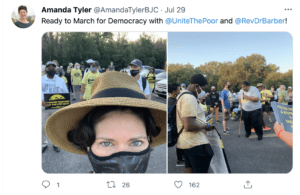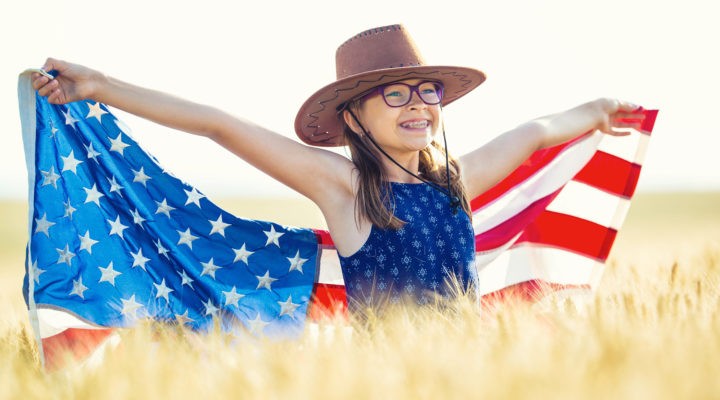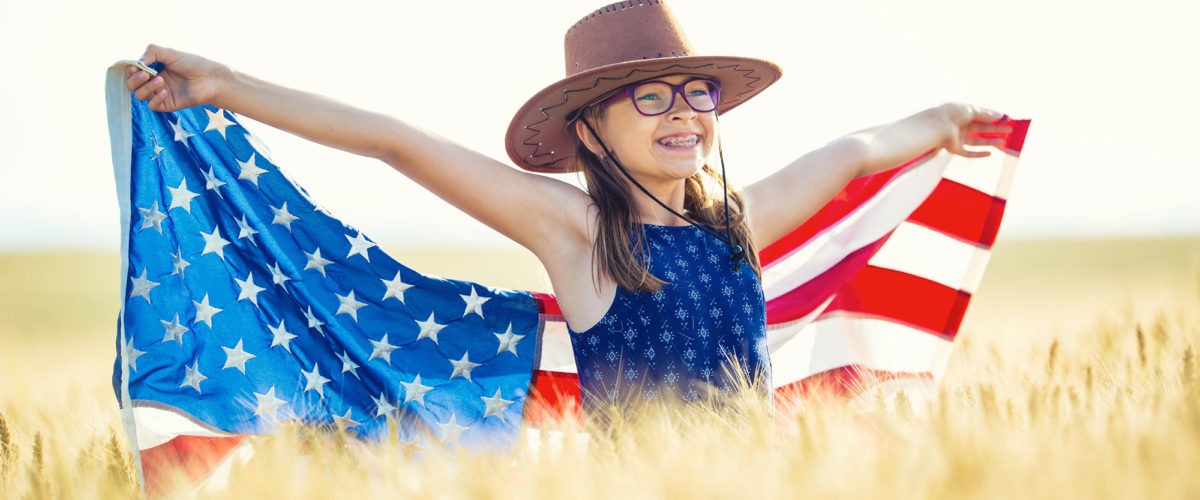I recently returned to Texas after living in Boston for the last several years. I grew up in Texas. I’m not unaccustomed to the culture here, but sometimes I’m a bit taken off guard by aspects of West Texas culture when I return home.
I’m reminded just how “Texan” Texas is. I’m reminded of the number of trucks, cowboy hats and cacti. I’m also reminded of the extent to which conservative political ideals are intertwined into society and public theology.
 There are things I really missed about my home state while living in the Northeast: good Mexican food, the sun, friendly eye contact with strangers, air conditioning as the norm rather than the exception, and the courtesy of holding a door open for the person behind you. I look forward to these things.
There are things I really missed about my home state while living in the Northeast: good Mexican food, the sun, friendly eye contact with strangers, air conditioning as the norm rather than the exception, and the courtesy of holding a door open for the person behind you. I look forward to these things.
But there are other aspects of Texan culture that lessen my homesickness for the Lone Star State. These things make me want to put up with Boston’s winter nor’easters in exchange for somewhat saner politics.
‘God bless the USA’
I went to a coffee shop the other day that displayed a “Don’t Mess with Texas” sign in the window. I ordered and asked the barista for the Wi-Fi password. She said, “It’s ‘GodblesstheUSA’ with ‘God’ and ‘USA’ all capitalized — obviously.” A quintessentially Texan moment.
I should be used to moments like this, but I found myself a bit caught off guard. I also should be used to the mix of religion and politics here. But after being away for a bit, I feel slightly alarmed by some governmental injustices that blatantly harm marginalized people.
You should be alarmed too. Maybe you’re wholly unaware of Texas politics, or maybe your close proximity to Texas numbs you to the political chaos. Either way, let’s review three recent Texan political moves.
The wall
Shortly before I returned to Texas this summer, I read the news of the disaster declaration issued by Gov. Greg Abbott that reallocated $250 million to continue construction on the southern border wall. In addition to these funds, Abbott also asked for public donations to help pay for the wall. As of July 22, Texas citizens have donated more than $873,000 — a shockingly high number considering most tax-adverse Texans are vehemently opposed to giving money to the government.
In 1993 the U.S. started building solid fencing at the southern border. In 1994, NAFTA was enacted, creating a huge shift in immigration policies and proving that the border is neither fully permeable nor fully impermeable. Goods can cross borders. People cannot.
“The Texas-Mexico border is 1,254 miles long.”
The Texas-Mexico border is 1,254 miles long. The Trump administration completed 55 miles of the wall; 90 miles were completed before Trump’s presidency; and 225 miles of the wall were left unfinished after construction was suspended by the Biden administration. The Texas Tribune estimates Abbott will be able to finish at most 62 miles of the wall with the current funds.
That leaves nearly 900 miles along the border with no barrier at all.
With 900 miles to go, the border wall in Texas is little more than a pipe dream and a political stunt to appease a base that likes the idea of a wall. In 2019 nearly 75% of white evangelicals supported expanding the wall at our southern border.
The Christian desire to build fences always has seemed a bit odd to me. I remember attending a town hall meeting at a Texas church I was visiting near my college town where the congregation discussed expanding their ministry to people experiencing homelessness in the community. They had wonderful plans and ideas — one of which was to build a prayer garden outside.
Suddenly, the town hall conversation turned to the need to build a wall around this outdoor space. We couldn’t have people sleeping there. That would be unsafe. The discussion even went so far as to suggest building a fence with spikes at the top so no one could climb over it.
What started as a plan to minister to people in the community derailed into talk of designing a tall fence with spikes so that people would not be able to get in from the outside without being impaled.
Congregants said they wanted a fence for safety reasons. The unhoused people might be dangerous, mentally ill or unclean. Subtext: Let’s help those people, but let’s keep them away from us. Let’s build a wall.
“Our borders and walls whisper secrets about who we see as a dangerous threat and who we see as unworthy to be a part of our group.”
Our views of borders and space are pervasive in how we attempt to create in-groups and out-groups. Our borders and walls whisper secrets about who we see as a dangerous threat and who we see as unworthy to be a part of our group.
While the border wall in Texas is an unattainable reality — not to mention unsuccessful at stopping people from crossing the border — the idea of expanding the wall still polls well with many Christians. A wall creates an illusion of safety and separation, making a clear boundary to keep everyone in their place.
Voter suppression
A new set of bills pushing for voter suppression will disproportionately affect marginalized voters by making it more difficult for some Texans to cast their ballot.
Senate Bill 1 and House Bill 3 restrict voting through measures such as banning drive-thru voting, reducing voting hours, adding new ID requirements, complicating the process for mail-in ballots and strengthening protections for partisan poll watchers.
These restrictions most harshly affect communities of color, senior citizens, voters with disabilities and people who work long hours.
“This is already the toughest state in which to vote, bar none,” former U.S. Rep. Beto O’Rourke said. “You are now proposing a set of restrictions in this elections bill that is going to make it that much harder for people to participate.”
Hundreds of Texans waited for hours at the state capitol to give testimonies against these bills. Democratic House members staged a walkout to break quorum and left for Washington, D.C. Despite their efforts, both bills are expected to pass.
“Texas is the site of the march, but more than 20 laws restricting voting have been passed this year throughout the U.S.”
On July 28, William J. Barber II of the Poor People’s Campaign led a four-day march for voting rights from Georgetown to Austin, Texas. The 27-mile Moral March for Democracy was inspired by the march for voting rights from Selma to Montgomery led by Martin Luther King Jr. in 1965.
Texas is the site of the march, but more than 20 laws restricting voting have been passed this year throughout the U.S., according to the Brennan Center for Justice. “The legislators have gone to D.C., but Texas is … the eye of the storm,” Barber said.
Some view the increase in voter restriction laws as an issue that should concern Christian communities.
“It is my personal conviction that one of the greatest derelictions of religion at this time is that faith leaders have remained silent on the issue of justice as it relates to voter suppression,” Bishop James Dixon, pastor of Houston’s Community of Faith Church, said. “We think the credibility of the pulpit is being diminished by the silence because that speaks to complicity.”
 Amanda Tyler, executive director of Baptist Joint Committee for Religious Liberty, participated in the march to witness the power of faith-based advocacy in action.
Amanda Tyler, executive director of Baptist Joint Committee for Religious Liberty, participated in the march to witness the power of faith-based advocacy in action.
“I marched with other Baptists, Quakers, Episcopalians, Muslims and people motivated by other religious and moral convictions in this public advocacy,” Tyler said. “We started the day at a Baptist church and ended the day at a Muslim community center. Religious freedom for all makes this kind of faith-based advocacy possible and powerful.”
She added: “I believe our faith teaches the equality of all people and that we as Christians have a moral responsibility to advocate for equality in all places, including access to the voting booth. Just as religious freedom is foundational to other freedoms, access to the vote lays the groundwork for full and equal participation in our democracy.”
Abortion
A new law allowing ordinary citizens to sue abortion clinics or anyone who assists a woman in getting an abortion will take effect on Sept. 1 in Texas. The bill prohibits abortions as early as six weeks, which is before many women realize they are pregnant. It is one of the strictest laws against abortion in the nation since before Roe v. Wade.
Medical clinics are not alone in susceptibility to be sued under this law. Anyone who helps a woman in the process of getting an abortion can be sued. This includes medical care professionals, rape crisis advocates, friends and family members who offer a ride to the clinic or funds for the procedure, and ministers who provide counsel.

Daniel Kanter
Daniel Kanter sometimes offers counsel to women weighing their options in these situations. He is among a group of ministers and advocates who filed a federal lawsuit to overturn the bill. He views the new law as an impediment to his ministry.
“It’s possible that whether a clergy person is for or against abortion, any discussion (we have) leading up to a family making a decision to have an abortion could (result in being) sued because we don’t control what happens when the members of our communities leave our care,” Kanter said.
Kanter and others who directly and indirectly help women in their decisions about abortion will be sued not by government officials but by members of the general public. These deputized citizens will receive at least $10,000 if they successfully sue someone who helps a woman getting an abortion.
The new system makes it more difficult for clinics to challenge lawsuits. They cannot sue government officials based on unconstitutionality because governmental officials are not the ones enforcing the law.
It also keeps all legal matters in Texas. While clinics often took their legal complaints to federal court, where anti-abortion measures were more easily suspended, most lawsuits will have to stay at the state level under the new bill.
There are serious political, moral and religious beliefs held by many around the topic of abortion. We must hold those beliefs in tandem with the fact that abortion restrictions disproportionately affect marginalized women. The reality is that it will always be possible for rich, white women to have access to safe and affordable abortions.
“The reality is that it will always be possible for rich, white women to have access to safe and affordable abortions.”
“Reproductive choice has to be straightened out. There will never be a woman of means without choice anymore. That just seems to me so obvious,” former Justice Ruth Bader Ginsburg said in a 2009 interview with the New York Times. Abortion restrictions “affect only poor women, and I don’t know why this hasn’t been said more often.”
Speaking from a ministerial perspective, Kanter said: “The real religious issue is how we are compassionate leaders who pay attention to the challenges people face in their lives. To be that listening ear is part of our jobs.”
‘Don’t mess with Texas’
I’ve been thinking a lot about the “GodblesstheUSA” Wi-Fi password in the coffee shop with the “Don’t Mess with Texas” sign in the window. Both these phrases existing in the same space seems indicative of Texan culture. But at face value, they seem odd together, as if the blessing needed an added stipulation. “God bless the USA but don’t mess with Texas.”
 I know it’s just a Wi-Fi password, and I really shouldn’t read too much into it. But I’ve always found the phrase a little trite. Like when the employee of a store wishes you a blessed day on your way out — something else that really only happens in the South.
I know it’s just a Wi-Fi password, and I really shouldn’t read too much into it. But I’ve always found the phrase a little trite. Like when the employee of a store wishes you a blessed day on your way out — something else that really only happens in the South.
What does “God bless the USA” really mean? There’s a level of exclusivity implied. Not everyone is blessed. It’s specific, directed, selective. God bless the USA insinuates American exceptionalism. The phrase assumes the United States’ history and mission give it unique superiority over other nations.
God bless the USA also implies Christian nationalism. Although it’s not specified in the catchy saying, we’re not referring to any god when we use the expression. God bless the USA asks the Christian God to demonstrate preferential treatment to the U.S. The phrase insinuates the all-too-popular belief that Americans are the chosen people of God. Such a myth historically has led to physical and cultural genocide and colonialization.
But I digress.
I’m troubled by the phrase “God bless the USA” in light of these three political moves in Texas because the slogan is inherently exclusive — something it shares with these three issues. All three are complicated political issues that cannot be fully covered here. But the common thread between them all is that marginalized people are most negatively affected.
What is unspoken in “God bless the USA” revolves around who is not being blessed and the extent to which the blessing is limited. There is an unspoken “but” following the pithy expression. It is as if “God bless the USA” is used as a Christian shield to cover up a more insidious and exclusionary desire.
“Many Texans want that blessing to reach only so far and only to certain people.”
God bless the USA but not people who look a certain way, believe a certain thing, love a certain person, come from a certain place, vote a certain way or make a certain decision.
For the Lone Star State, what follows after the “but” in God bless the USA might as well be “Don’t Mess with Texas.”
“Don’t Mess with Texas” began as a slogan for an anti-littering campaign. But it’s morphed into a popular idiom used to conserve, reinforce and protect popular Texan views and values.
Texans want a blessing, but if these three political moves prove anything it’s that many Texans want that blessing to reach only so far and only to certain people.
God bless migrants. But keep migrants out of the U.S.
God bless women. But punish women who get an abortion and anyone who helps them.
God bless voters. But keep some people from voting.
God bless the USA, but don’t mess with Texas.

Laura Ellis
Laura Ellis currently serves as a Clemons Fellow with BNG. She recently graduated from Boston University School of Theology with a master of divinity degree. She is originally from Abilene, Texas.
Related articles:
Poor People’s Campaign marches on Texas Capitol with demands for voting rights
Poor People’s Campaign plans a march in Texas to protest restrictive voting legislation


